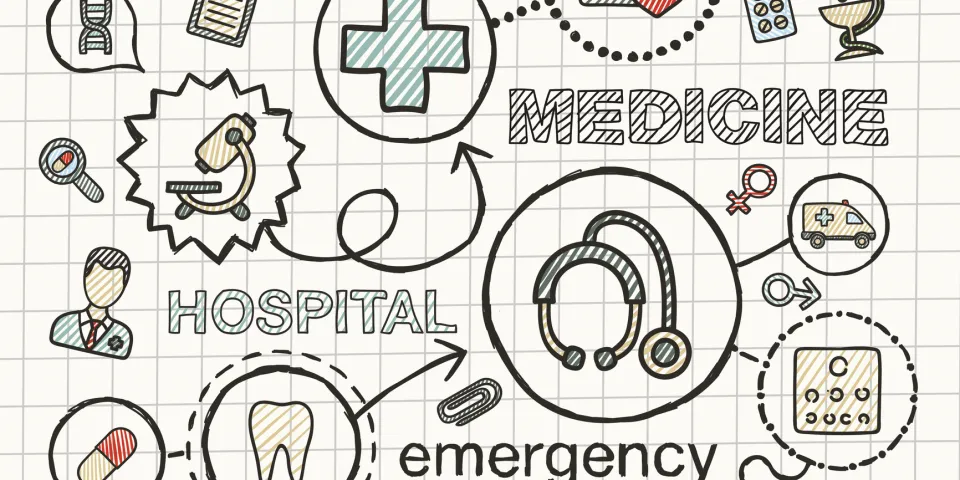Latest
Unconventional Nursing Careers
Mar 22, 2021

The common perception is that nurses work in patient-focused roles in typical healthcare organizations, and that’s largely true – 60% of the 3.1 million registered nurses (RNs) in 2019 worked in hospitals and 18% worked in ambulatory services, according to the Bureau of Labor Statistics (BLS).
However, there are many unconventional nursing careers – including ones besides nursing – that people can pursue with their BSN:
1. Flight Nurse
If you enjoy adventure and have experience in the Intensive Care Unit (ICU) or Emergency Room (ER), then a career as a flight nurse could be right for you! Flight nurses treat patients – often ones who are critically injured – in unstable environments to help transport them from an accident to a medical center or from one center to another.
The day-to-day duties of a flight nurse include daily equipment checks, cleaning and ensuring that the aircraft is ready for patients and checking medication. Many of the responsibilities of a flight nurse resemble the daily tasks of an ER nurse but flight nurses work in tighter quarters. During transport, nurses provide care to stabilize patients, which can include starting IVs, administering medication and sometimes performing CPR.
To become a flight nurse, you will need to become an RN with either your associate of science in nursing (ASN) or a bachelor of science in nursing (BSN) and successfully pass your NCLEX.
2. Forensic Nurse
Although it would seem like a forensic nurse position is hard to find, is not as rare as you think. Forensic nurses might participate in autopsies, and also work with victims of sexual assault, domestic violence and child abuse.
Forensic nurses collect evidence and can give expert medical testimony that can be used in court. Forensic nursing is not distinct from other medical care but is focused on the individual needs of a patient. Many forensic nurses frequently work in hospitals or communities to provide this care to patients.
3. Nurse Writer
Nurses writers come from every walk of life and are passionate about educating readers on healthcare topics.
Although almost any type of nurse can become a nurse writer, exact qualifications vary by location and the employer’s discretion. Oncology nurses can write about cancer care whereas pediatric nurses can share insights about nursing care for children. They may write about preventive care, new practices or interviewing experts. A nurse’s audience can also vary. Nurse writers can write for other nurses or the general public.
In addition to previous nursing experience, nurses may find it useful to earn their Medical Writing Certified (MWC) credential from the Medical Writing Certification Commission.
4. Legal Nurse Consultant
Legal Nurses Consultants (LNC) are RNs who provide feedback and consultation to attorneys about medical issues. LNCs could work in many settings such as consulting practices, private legal firms and insurance companies to fill the gap between the legal process and healthcare.
These nurses perform a varied role including assisting in medical malpractice, personal injury, compensation, discrimination and product liability cases. As an LNC, you can work independently with many types of firms and cases and will prepare and review medical records, identify and interview patients and witnesses, and even testify in court.
5. Case Management Nurse
Case management nurses are RNs who design health plans for patients. They will collaborate with other medical providers to create a plan. They are in many ways the glue that keeps and coordinates patient care and act as patient advocates. Case managers will often manage multiple patients simultaneously and continue to follow up with older patients. They generally work with patients who have chronic health conditions and will need long-term care.
6. Camp Nurse
Many kids have such great memories from summer camp, but did you know that you could be a part of that great experience? RNs can become camp nurses, which includes putting on bandages, taking care of cuts and bruises, offering prescription medications and assisting during medical emergencies. As a camp nurse, you’ll quickly realize every day is different.
7. Nurse Informaticist
If you are interested in technology, a role as a nurse informaticist could be right for you! A nurse informatics specialist is a technical role in which you’ll use data to monitor systems, programs and patient care data to see what is working. You will not only implement these changes, but you will also train other nursing staff to use this technology.
Some RNs can start their career in this position, but many organizations require an advanced degree such as a master of science in nursing (MSN) or industry certifications.
If you are feeling burned out in your nursing career, you could explore your options for a new position. The healthcare industry is full of unconventional nursing opportunities outside of a hospital setting that could be open to you.
Learn More About Our Nursing Programs
Bureau of Labor Statistics (BLS), U.S. Department of Labor, Occupational Employment and Wage Statistics 2023 / Occupational Outlook Handbook 2022. BLS estimates do not represent entry-level wages and/or salaries. Multiple factors, including prior experience, age, geography market in which you want to work and degree field, will affect career outcomes and earnings. Herzing neither represents that its graduates will earn the average salaries calculated by BLS for a particular job nor guarantees that graduation from its program will result in a job, promotion, salary increase or other career growth.
Latest
Recent Blog Posts
Subscribe to our Newsletter
Get the latest news you need to know, from study hacks to interview tips to career advancement. Have it delivered right to your inbox biweekly.








